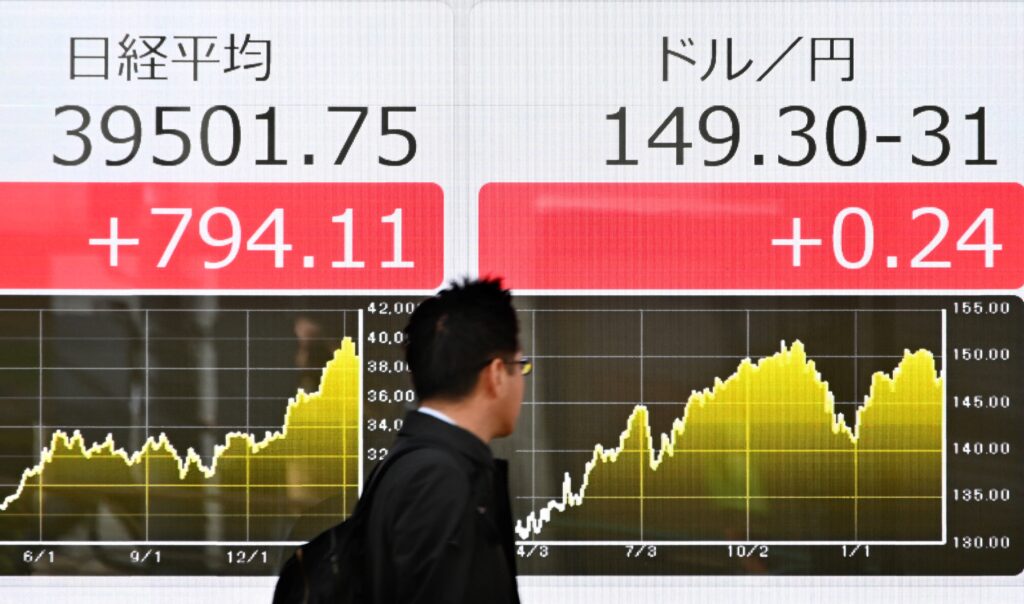
- ARAB NEWS
- 14 Jul 2025

HONG KONG: The yen sank to a 34-year low against the dollar Wednesday after a top Bank of Japan official indicated it would press ahead with a loose monetary policy, even after this month hiking interest rates for the first time since the global financial crisis.
The fall raised speculation that authorities would step into markets to support the currency after officials warned in recent days against speculation.
The yen dropped to 151.97 to the dollar — the lowest point since 1990 — before strengthening slightly.
Earlier in the day, Bank of Japan board member Naoki Tamura said officials would not embark on a speedy programme of monetary tightening as they try to nurture an economic recovery while keeping a lid on inflation.
“The handling of monetary policy is extremely important from here on for slow but steady progress in normalisation to fold back the extraordinarily large-scale monetary easing,” he said, according to Bloomberg News.
The weaker yen helped spur a rally in the Nikkei as exporters benefited, making the index the region’s best performer.
“Given recent history a breach of 152 could instigate intervention,” National Australia Bank’s Rodrigo Catril said. “The break of (the) previous high has accelerated the move.”
Other markets were mixed ahead of key US data releases this week, including the Federal Reserve’s preferred gauge of inflation, and the looming corporate earnings season.
Hong Kong, Shanghai, Seoul, Jakarta and Wellington were down, while Sydney, Singapore, Taipei, Mumbai, Bangkok and Manila rose.
The tepid performance followed another soft day on Wall Street with observers warning the latest equities rally may have run out of steam as traders assess the outlook for Federal Reserve interest rates.
While the US central bank last week indicated it would cut borrowing costs three times this year, some investors fear that recent indicators and comments from decision-makers have put that in doubt.
Figures released Tuesday on February’s durable goods sales suggested the world’s top economy remained healthy and consumer confidence had picked up, though less so about the future.
Jobless claims and economic growth readings are due over the next few days, before the crucial personal consumption expenditures (PCE) index on Friday.
While that is expected to show a slight pick-up from January, analysts said that would not likely spook markets too much, though a big miss to the upside could cause concern.
Next month sees the start of earnings releases, which could have a major impact on sentiment, as the recent rally across markets has been partly based on expectations for future profits.
“With market valuations at lofty levels, there’s little room for corporate earnings performance to falter or for the Federal Reserve to deviate from its anticipated course of three rate cuts,” said Stephen Innes at SPI Asset Management.
“Any divergence from these expectations could potentially lead to market turbulence.”
AFP